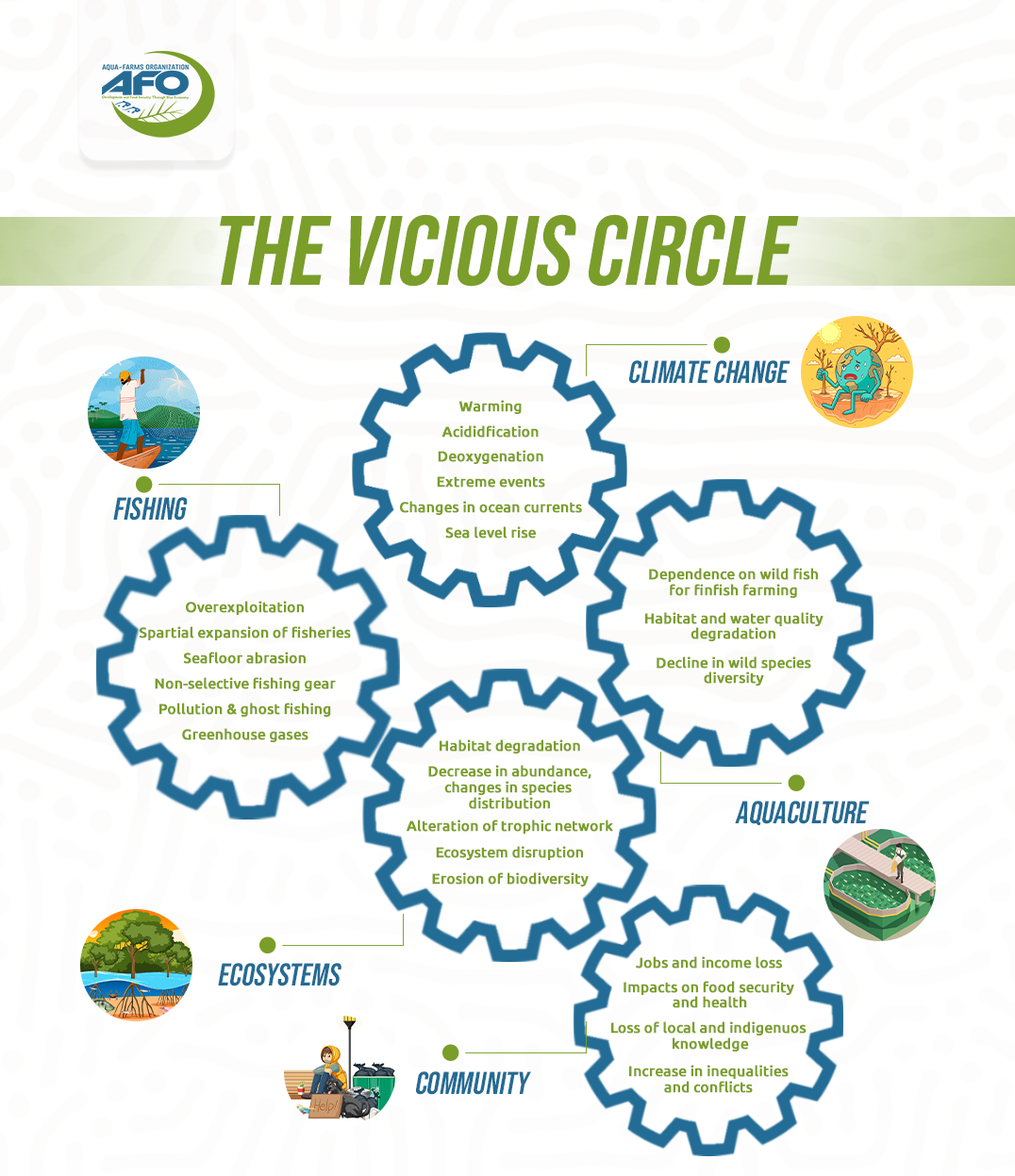The Vicious cycle is an unprecedented crisis. Heard of it?
This is a complex web of threats; climate change, overfishing, harmful aquaculture practices, ecosystem collapse, and community impoverishment which has created a self-reinforcing cycle of degradation. But also, within this crisis there is an opportunity for a transformation.

AFO along with other leaders in the blue space has ventured on an integrated approach that promises to break this destructive cycle and perhaps offer hope for a sustainable future for our oceans and coastal communities.
How does this Cycle of Degradation come about?
The ocean crisis perpetuates itself through interconnected challenges:
- Climate change triggers ocean warming, acidification, and rising seas, devastating marine ecosystems
- Destructive fishing practices deplete fish stocks, damage habitats, and increase carbon emissions
- Conventional aquaculture, while offering an alternative to wild fishing, often compounds these problems through habitat destruction and reliance on wild-caught fish feed
- Ecosystem deterioration creates ripple effects throughout marine food webs
- Coastal communities, trapped in economic instability, face mounting pressure to exploit the little resources
This self-perpetuating cycle demands a comprehensive solution. How do we go about it?
What is AFO’s Integrated Approach to Ocean Recovery
It is most important to recognize that marine conservation and community development are inseparable and hence the holistic strategy that targets multiple pressure points within the system:
Ecosystem Protection and Restoration:
Continuous efforts to establish and maintain marine protected areas (MPAs) while restoring vital habitats, coral reefs, mangroves, and seagrass beds. These ecosystems serve as natural climate buffers while nurturing biodiversity and supporting fish population recovery.
Sustainable Fishing Innovation:
Working directly with local fishing communities, AFO works to introduce knowledge on selective fishing techniques and implementation of seasonal protection zones. These evidence-based approaches help restore fish populations while maintaining fishing livelihoods.
Community Empowerment:
Understanding that thriving oceans require thriving communities,
AFO continuously has invested in:
- Sustainable resource management training
- Alternative livelihood development (eco-tourism, seaweed farming)
- Climate adaptation strategies
- Economic diversification programs
4. Strategic Advocacy and Education:
AFO drives change through:
- Public awareness campaigns highlighting ocean-human interconnections
- Policy advocacy promoting marine conservation
- Community-based environmental education
- Stakeholder engagement at all levels
What are our success stories?
We have continuously delivered measurable results, and we have stories to tell,
Community-Managed Fisheries Revival
Sampling efforts In Songo Songo-Kilwa, Southern Tanzania, the implementation of a community-managed no-take zone has transformed local fisheries. Within 24 months, fish populations rebounded significantly, skyrocketing the local economy through increased catches in surrounding waters.
Coastal Protection and Economic Innovation
AFO’s mangrove restoration initiatives in erosion-prone areas of the coastal region like Kunduchi and Buyuni in Dar es salaam achieved multiple wins: strengthened coastal defenses, new revenue streams through honey production, and tentative community income from carbon credit programs that are still in pipeline.
Another milestone that was witnessed as part of the Matumbawe Hai Coral Restoration Project in Buyuni-Kigamboni, the restoration of the coral reef was observed to be a success by an observed recovery of fish breeding in the sites but also identification of resilient species among corals planted. Moreover, an increased knowledge level of community members on coral habitat restoration, why it is important and how to continuously conserve these habitats.
The cycle of ocean degradation is not inevitable however it can be broken through coordinated action and innovative solutions. It is now evident that when conservation and community development work in harmony, transformation becomes possible.
Take Action
Explore our website, www.afo.or.tz to:
- Learn more about AFO’s initiatives
- Support our ongoing projects
- Explore partnership opportunities
- Join the movement for sustainable oceans
We are leading the way in developing integrated solutions for marine conservation and coastal community development.

Javis Bashabula
Communications and Knowledge Management Lead-AFO
